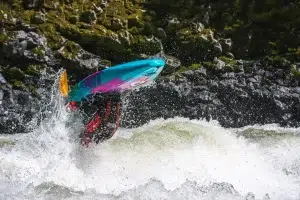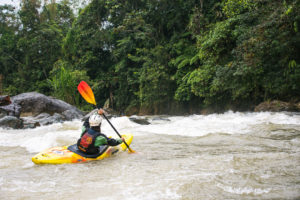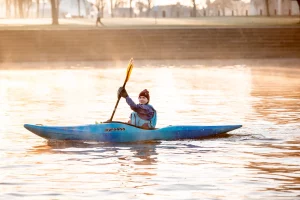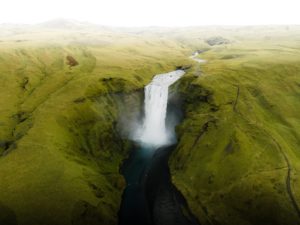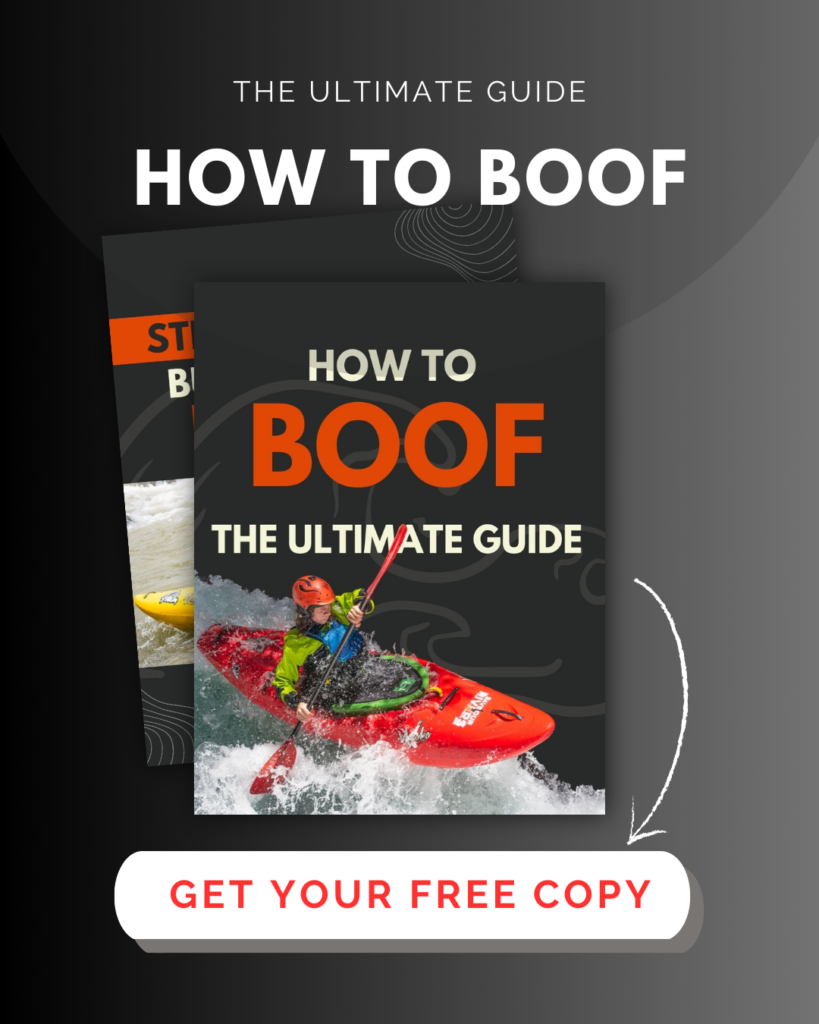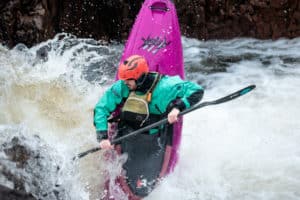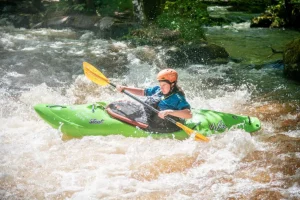Flatwater practice… the words probably fill most of us with a slight feeling of dread! Or at least with a distinct lack of enthusiasm!
What if we’ve all got it wrong though? What if flatwater training could prove to be a powerful antidote for one of our ugliest, unspoken issues as paddlers: the crude act of comparison?
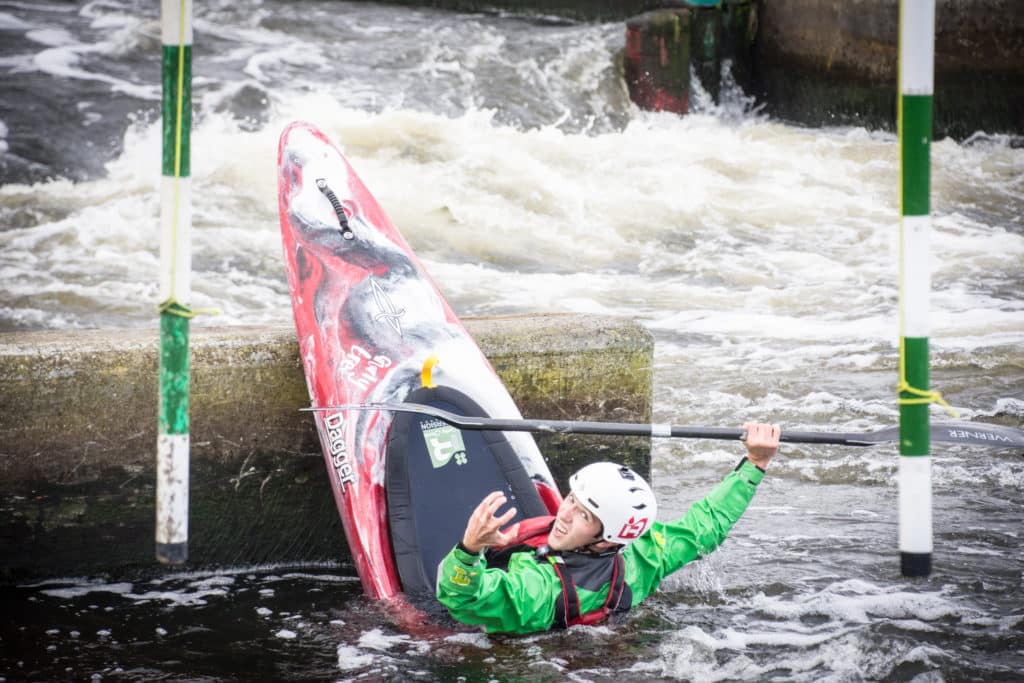
If you’re anything like me, you go through phases in kayaking where you look at other people and your internal monologue follows roughly this pattern:
“Man, I wish I could kayak as well as…”
“How do they do that?!”
“Why doesn’t my boof work like that?”
We can all fall into this trap of crude comparison and the ensuing feelings of inadequacy. Frankly, our entire diet of social media consumption feeds this in an unhealthy, but that’s a whole other can of worms that I won’t be opening in this article! Regardless, the sense that “my paddling isn’t as good as I want it to be” is a common one among whitewater kayakers.
To be clear, a desire to be learning and improving is not a bad thing – far from it! – but the aim of this article is to try to de-couple that desire from any feelings of inadequacy or unhealthy comparison. And my suggestion of a cure – not a perfect or complete one, because there are other, deeper, things happening in our hearts and minds when we compare ourselves to others – is the balanced use of flatwater training.
There is no substitute for time spent on the water, in any environment or discipline, to aid a holistic growth in personal skills. However, I want to argue that flatwater freestyle, or even simple flat water distance paddling, occupies a unique position among the plethora of disciplines available to us. The reason for this is simple: with minimal environmental distractions and complications, there are theoretically the fewest possible derivatives from simply being a human in a kayak. In other words, it is the closest thing to “lab conditions” we can find, enabling a unique focus on the technical aspects of paddling we want to improve.
In layman’s terms, time spent in a kayak on flatwater allows us to focus purely on technique, rather than worrying about what current, wind or weather are doing, not to mention reducing our focus on what peers or others are doing. Of course, heading out alone should only be done with the proper precautions, and sharing your flatwater practice time with others can be great fun, but investing time in doing so for yourself is where this method gains most traction as a learning tool.
Not convinced? Flatwater drills, such as lean cleans, cartwheels and flatwater kickflips, have a direct impact on your overall edge control and spatial awareness on the water, not to mention improving those specific tricks too. Check out this video for further evidence:
This tactic of increasing the balance of flatwater skills training in our kayaking diets is, as I said, not a perfect solution. It does nothing to tackle the psychological aspect of comparing ourselves to others, providing a more oblique attack on that issue. But with consistent effort and motivation, we can experience greater degrees of success in our personal paddling, which in turn will help us no longer feel the need for comparison in that same unhealthy way.
With flatwater training, you can supercharge your paddling. Not only will it improve your technical skills or teach you new and exciting tricks, but it should reduce those feelings of inferiority, leaving you free to enjoy your kayaking at whatever level and in any environment!
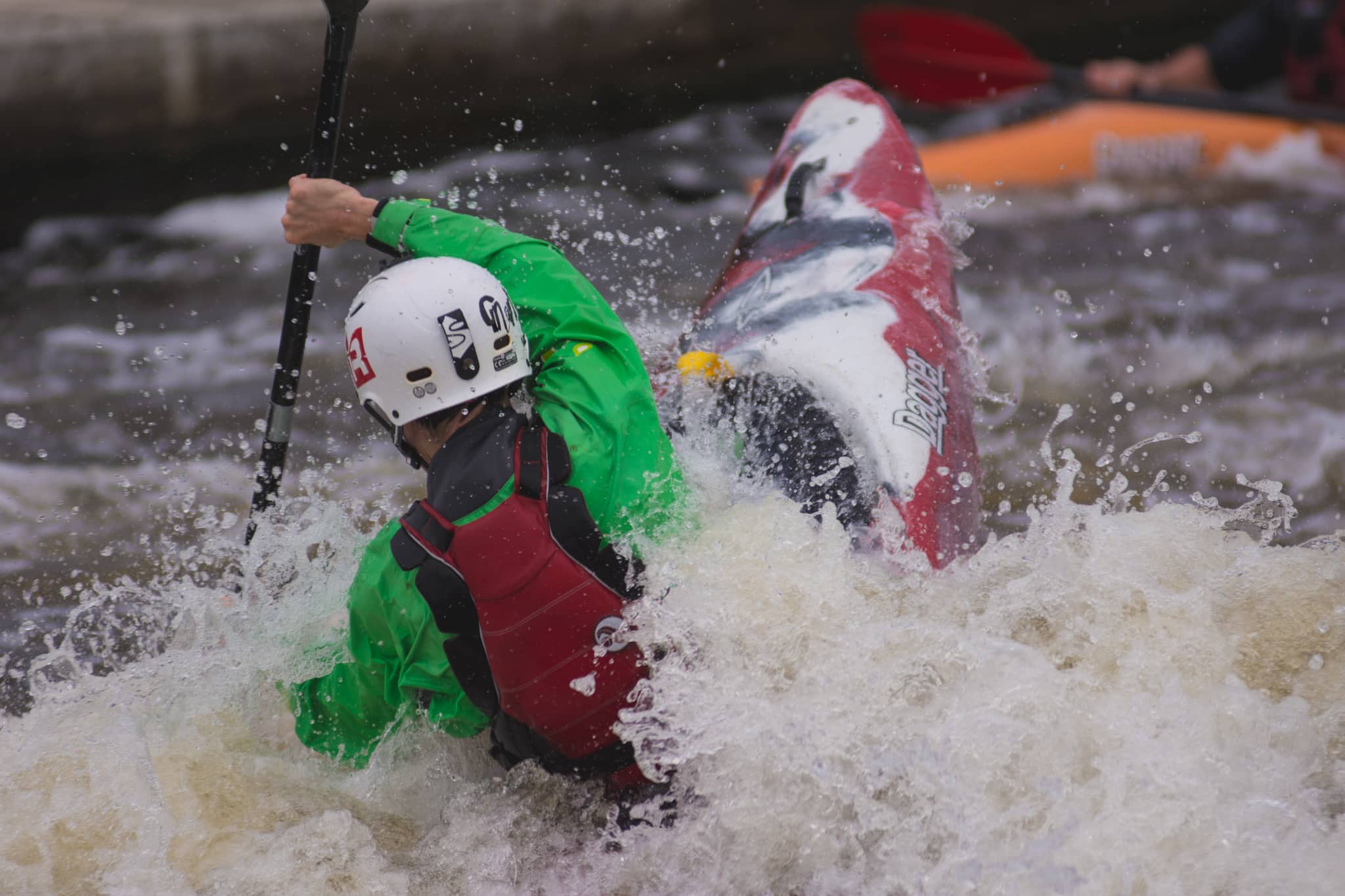
A UK whitewater paddler with a passion for downriver freestyle and coaching. Check out my YouTube for more content!
